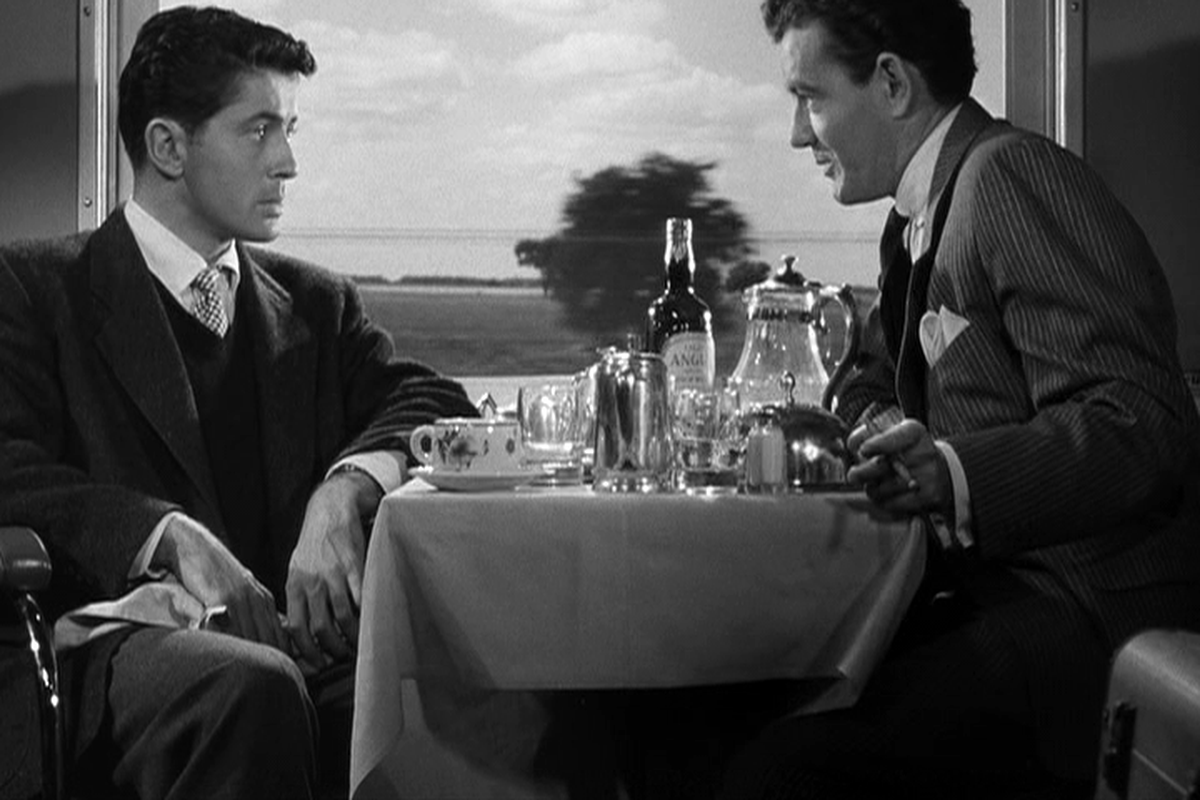Picture Perfect: Thrillers on a train – ‘Strangers’ is one of Hitchcock’s many masterpieces and his most suspenseful

It is difficult to top a truly great thriller. They’re more intimate than action movies, more bombastic than a horror film, and yet thrillers combine some of the best elements of action and horror. The end result is often a nerve-wracking tale that commands your attention and keeps getting better as it goes on, like a bomb that you know is there but are unsure when it’ll explode.
There are so many wonderful thrillers out there, with two of the big classics being “Jaws” and “Alien.” Many of the Coen brothers’ films fall into the thriller category, especially “No Country for Old Men” and potentially “Fargo,” though I personally classify that as “dark comedy.”
But there’s no debating who made the best thrillers of all time. Quite possibly the most consistent filmmaker of all time, almost always delivering the goods and setting the bar for all thrillers – the master of suspense, Alfred Hitchcock.
When I think of the best thrillers, my first five or six choices are all Hitchcock films. Near the top of that list will always be films like “Rear Window,” “Psycho,” “North by Northwest,” “Shadow of a Doubt” and “Vertigo.”
Some of these will eventually appear in this series of perfect films later. But for now, I’d like to start with what I probably consider Hitchcock’s most underrated film – 1951’s “Strangers on a Train.”
While the film has received more love in recent years, it is normally seen as not being on quite the same level as “Rear Window” or “Vertigo.” But I think “Strangers on a Train” is a masterpiece of thrills, cinematography and acting – and is quite possibly Hitchcock’s most rewatchable movie due to its villain and the climax.
The film opens, as the title implies, with two strangers having a chance encounter on a passenger train. Our strangers are Guy Haines (Farley Granger) and Bruno Antony (Robert Walker), and both quickly learn about a dilemma that the other has – Guy has fallen in love with Anne (Ruth Roman), the daughter of a U.S. senator, but his promiscuous wife Miriam (Kasey Rogers) refuses to legalize their divorce to keep Guy from marrying Anne.
Meanwhile, Bruno is a socialite who hates his overbearing father. Both of them wish for nothing more than their problems to be resolved. While this is happening, Bruno makes it clear that he has some rather psychopathic tendencies, like asking Guy, “You wanna hear about one of my ideas for a perfect murder?”
Bruno eventually comes up with a suggestion to both of their problems – swap each other’s murders, with Bruno killing Miriam and Guy killing Bruno’s father. Since Guy and Bruno haven’t met before today, there’d be no way the police could connect the murders to this discussion, and they wouldn’t be seen as murder suspects since both of them have no motive for killing the other’s target.
But throughout this discussion, Guy brushes off much of what Bruno says, while Bruno takes Guy’s comments as genuine affection and friendship. When Bruno suggests swapping murders, Guy doesn’t take his idea seriously but sarcastically says it’s a good idea. By the time both of them exit the train, Bruno honestly believes that Guy wants to go through with it, setting events in motion that cannot be undone.
The reason I adore “Strangers on a Train” more than most other Hitchcock films is because it is certainly his most suspenseful movie while also being his most satisfying. From the beginning when Bruno rattles off how much he already knows about Guy, there is a sense of uneasiness about Bruno and his extravagance.
Each scene that follows ratchets up the tension, wondering just how far Bruno will go. Until it all pays off in one of the best climaxes in any Hitchcock film as Bruno and Guy struggle on an out-of-control merry-go-round. This is sold through Walker’s unsettling performance.
Bruno is someone who sees aggression in everything and everyone. He talks to party guests about how everyone has wanted to murder another person at some point in their lives, but we know that he has the guts to go through with it. He is barbaric, yet sophisticated enough to know when to keep his mouth shut. But, worst of all, he’s persistent.
Another stellar aspect is the cinematography. This has some of the best shots in any Hitchcock film, such as Bruno’s shadow overtaking Miriam’s shadow in the tunnel of love, or Bruno’s solitary focus on Guy during a tennis match when everyone else is focused on the match.
The spectacular shots only amplify the growing tension. When I think of a truly great thriller, “Strangers on a Train” is usually the first one that comes to mind. Hitchcock made so many masterpieces, but this one is his most diabolical.